Table of contents
- What makes iMessage vulnerable
- How iMessages can be hacked
- Signs that your iMessage may be compromised
- 1. Unusual messages or requests
- 2. Unexpected device behavior
- How to protect your device from iMessage hacks
- 1. Temporarily disable iMessage
- 2. Keep iOS and macOS up to date
- 3. Enable two-factor authentication
- 4. Avoid connecting to unsecured Wi-Fi
- Conclusion
What makes iMessage vulnerable
Here’s a breakdown of some critical issues that make iMessage vulnerable:
- iCloud backup vulnerability: iCloud backups are not encrypted by default. So, if you rely on iCloud backups without setting up additional protection (two-factor authentication, passcode set for your device, etc.), your private conversations might be at risk.
- Recipient habits: If the person you’re chatting with has iCloud Backup enabled but doesn’t use Advanced Data Protection, your message security can still be compromised. This is because iCloud Backup backs up all of your personal data, including messages.
- Limited transparency: Unlike open-source systems, which allow security experts to review and test for weaknesses, Apple keeps its protocols private. This means you have to rely solely on Apple’s promises about safety without any external validation.
- Stored metadata: Apple may collect certain anonymized information (your use of iMessage, reports regarding junk/spam, etc.). While this data isn’t linked to individuals, understanding how it’s used is important for privacy.
How iMessages can be hacked
Now, you’re probably wondering how someone can hack into your iMessages. The most common methods hackers use are:
1. Exploiting iCloud accounts
One of the sneakiest attacks from hackers is having your Apple ID compromised. They often target weak Apple ID passwords or send phishing emails to steal login information. Once they access your iCloud, they can view any iMessage data stored in your account.
2. Spyware and malware
The evolving cyber threats make us worry about the remote hacks iPhones might be prone to. Advanced spyware, e.g., Pegasus, can infiltrate your device and access your private communications, including the iMessage app. These attacks are deeply concerning because they can occur via a seemingly innocuous missed call or rogue message.
3. Jailbroken devices
Jailbreak means removing the built-in security barriers within an iPhone. This makes it much easier for malware to be installed, potentially giving hackers access to your iMessages and other personal data.
How can you protect yourself from these threats? Clario Anti Spy’s Device system check detects jailbreak and rooting as well as flagging outdated OS versions.
Here’s how to use Clario Anti Spy’s Device system check:
- Install Clario Anti Spy on your mobile phone and set up an account.
- Tap Scan under the Device system check feature.
- Check the results of your operating system scan.
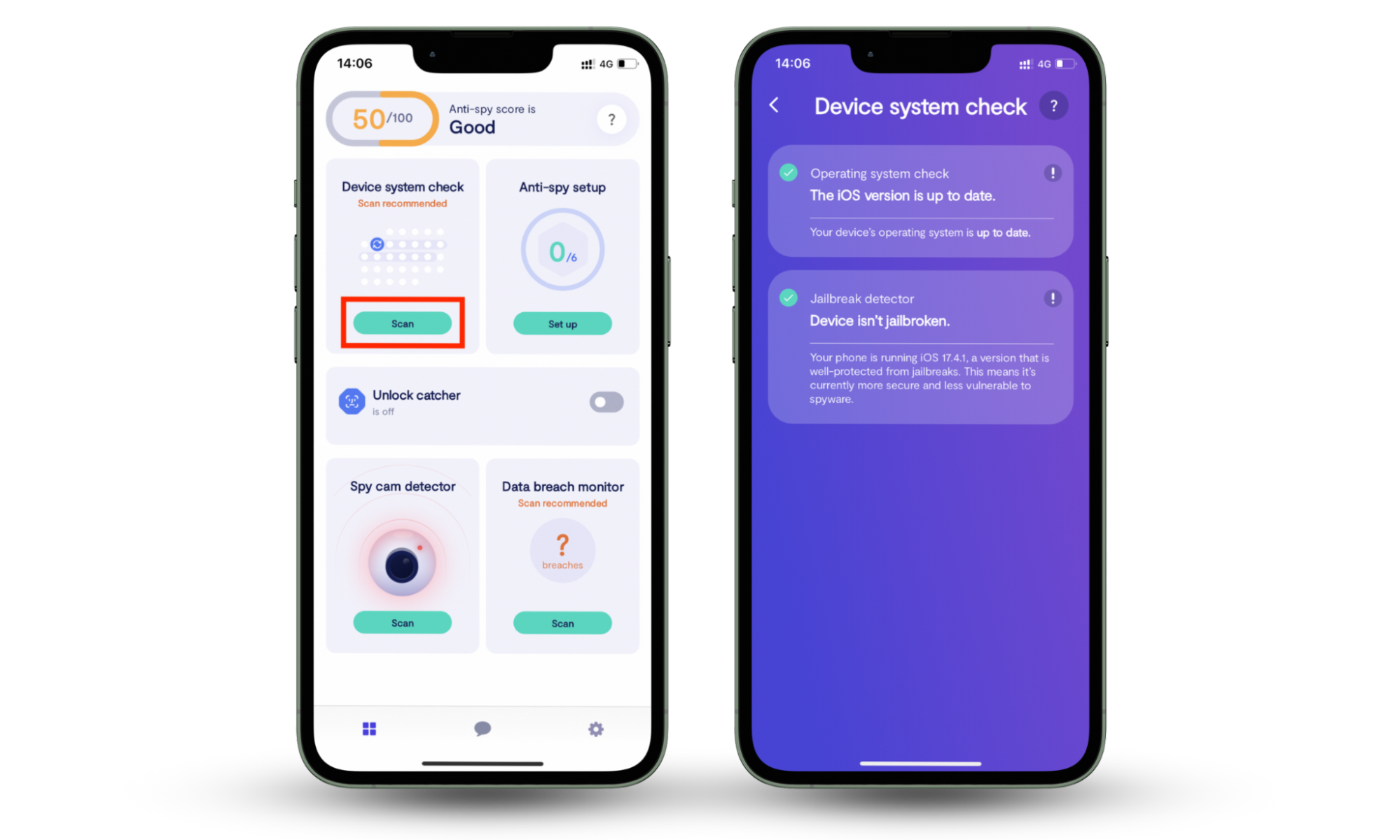
Signs that your iMessage may be compromised
If you notice as many as two of the following red flags, you should change your passwords and malware-scan your iPhone ASAP:
- receiving random text messages with unfamiliar links or strange characters
- apps crash frequently or take longer than usual to open
- overheating, especially when your device isn’t in use
1. Unusual messages or requests
These signs may signify your iMessage has been hacked:
- random text messages with strange characters or from unfamiliar contacts
- friends telling you they’ve received suspicious messages from your number
- messages appear deleted or altered without your doing
Wondering if someone can read your text messages from another phone? The answer is yes. If someone gains access to your Apple ID or your device, they may be able to intercept or read your iMessage. This interception can happen through:
- phishing scams that trick you into revealing your personal credentials
- exploited software vulnerabilities
- the use of shared devices or having an account logged in on someone else’s device
2. Unexpected device behavior
Have you noticed your iPhone acting strange lately? If you see any of the following indicators, you need to take urgent action:
- apps crash frequently or take longer than usual to open
- faster battery drainage, which may indicate unauthorized processes running in the background
- overheating, especially when the device is idle
How to protect your device from iMessage hacks
It’s deeply unsettling to think that someone may be reading your messages. No worries—we have extra tips you can use to reduce the risks of your iMessage being hacked.
1. Temporarily disable iMessage
If you notice weird activity on your iPhone, the first thing you can do is turn iMessage off.
Here’s how to temporarily disable iMessage:
- Head to Settings.
- Go to Apps and tap Messages.
- Next to iMessages, toggle the switch off (it should go grey).
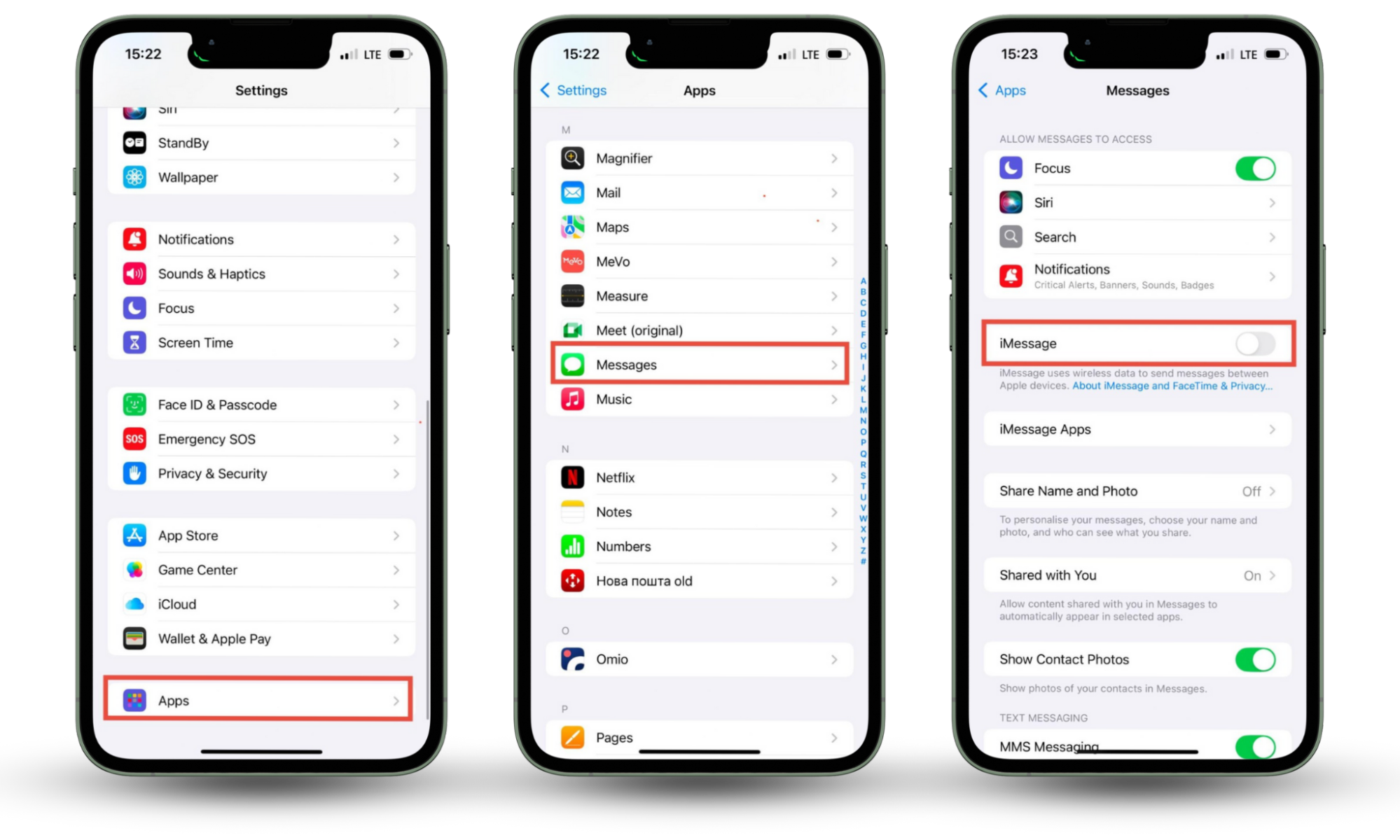
2. Keep iOS and macOS up to date
Apple routinely releases software updates with security patches, so you should keep an eye out for any new releases. Keeping your operating system up-to-date adds an extra layer of protection against newly discovered vulnerabilities.
Here’s how to check for iOS updates:
- Go to Settings.
- Select General, then click on Software Update.
- If new releases are available, click Update Now.
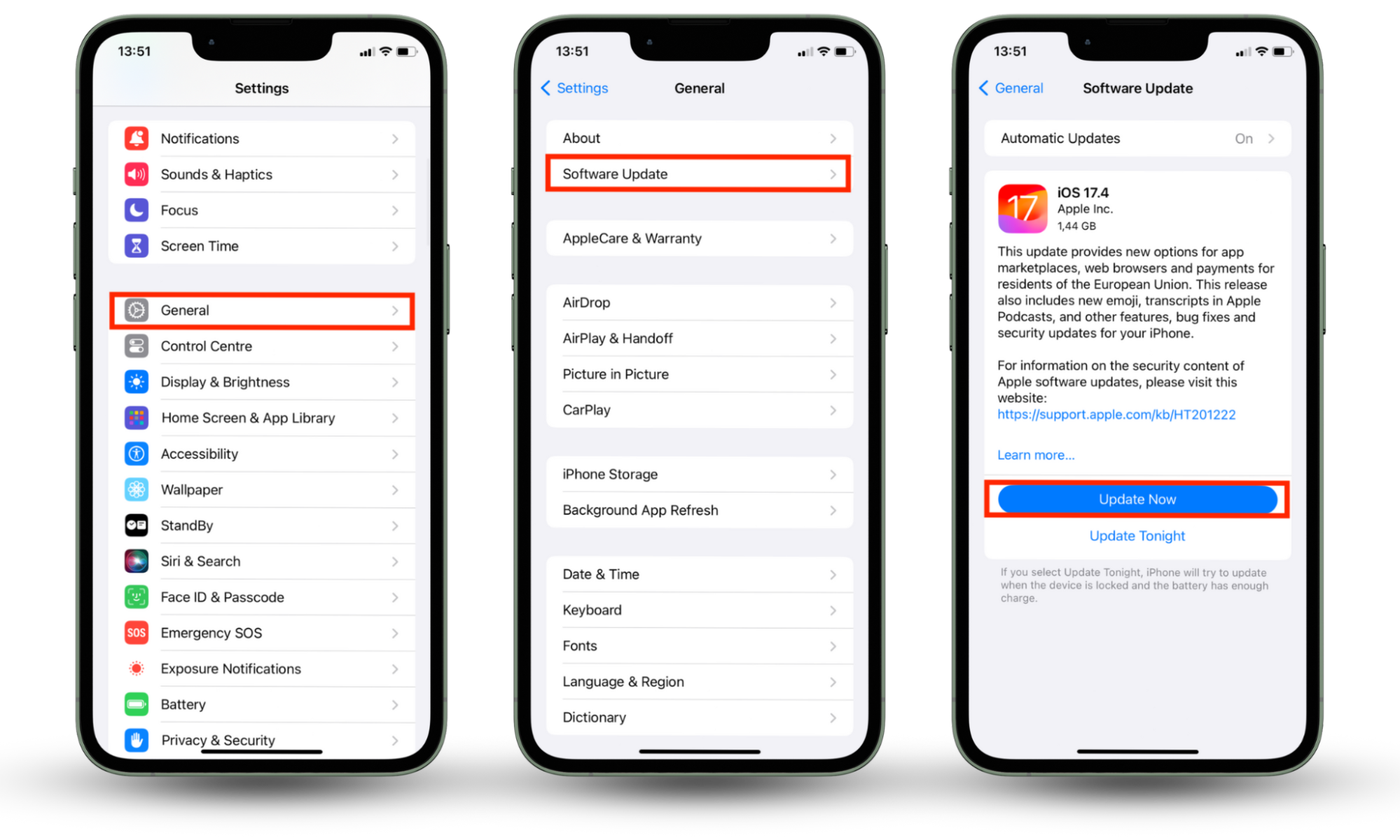
Tip
Clario Anti Spy’s Device System Check scans for outdated software and unauthorized access attempts, giving you peace of mind in just a few taps.
3. Enable two-factor authentication
2FA is your go-to solution if you’re worried about how to secure your iPhone from hackers. Adding this to your Apple ID login makes it much harder for hackers to gain entry. Even if someone has your password, they’ll need a unique verification code sent to your device.
Here’s how to enable 2FA for your Apple ID:
- Open Settings on your iPhone.
- Tap on your ID and select Sign-In & Security.
- Select Two-Factor Authentication.
- Tap on Add a trusted phone number. From there, you can set up a phone number or devices from which you will be able to double-verify new sign-ins.
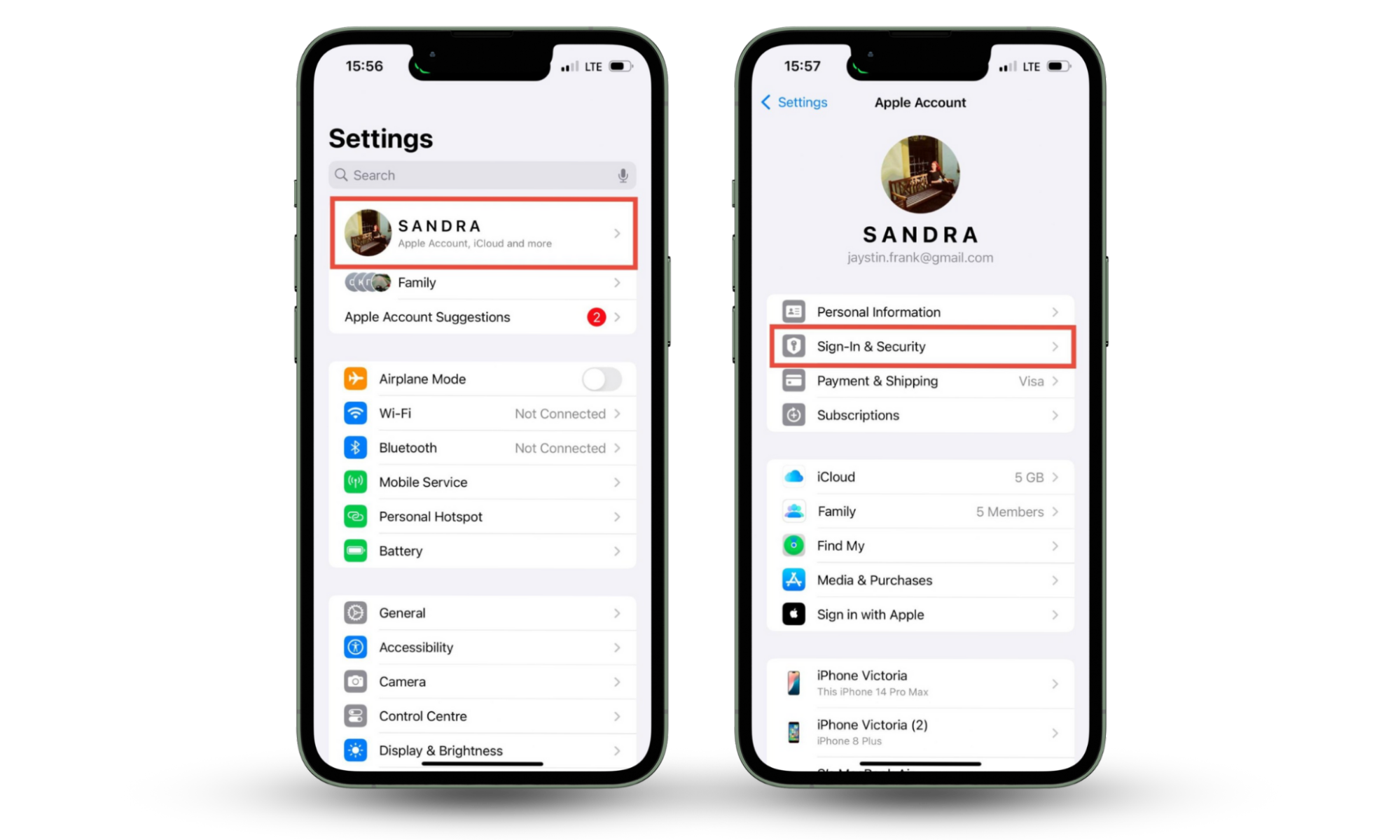
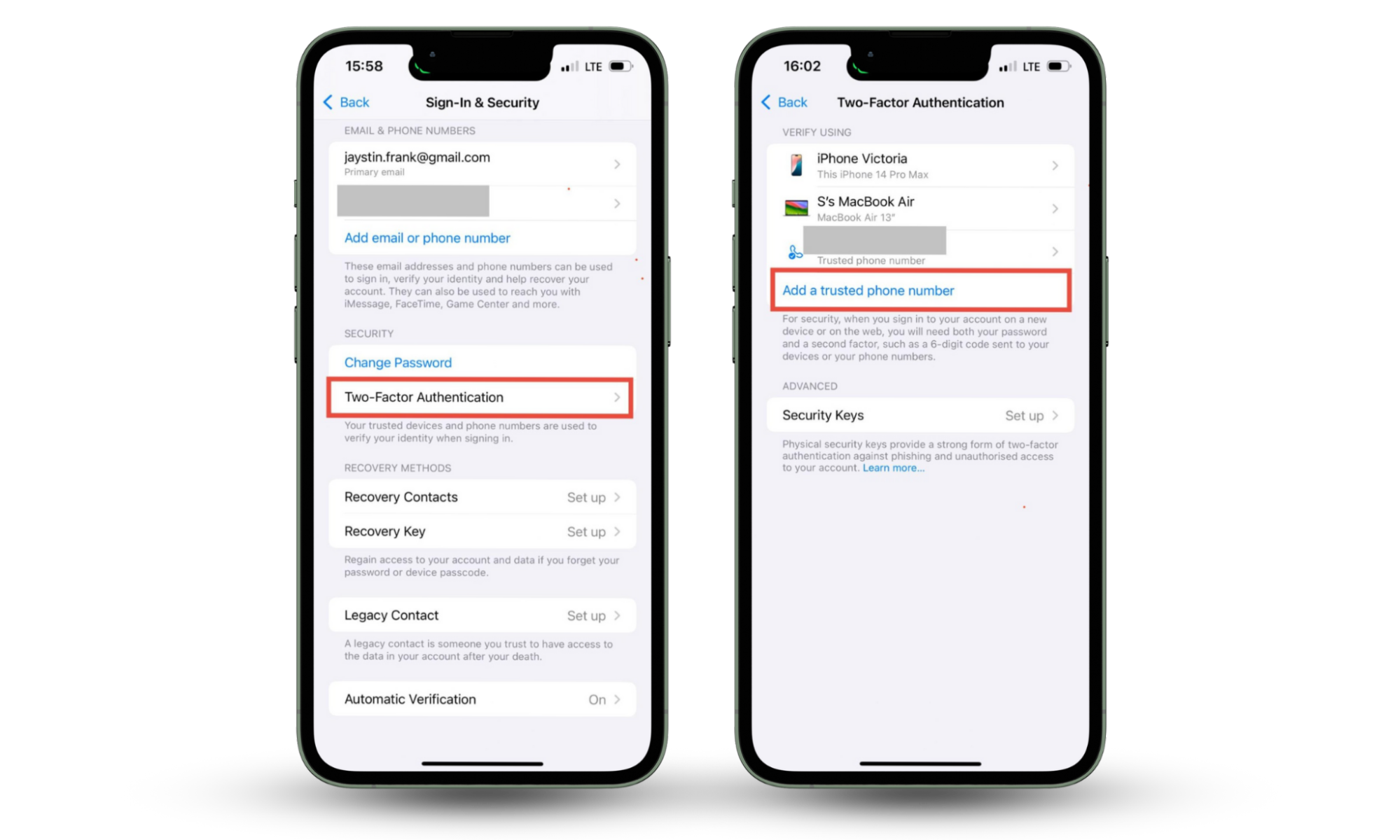
4. Avoid connecting to unsecured Wi-Fi
More often than not, public Wi-Fi networks are unsecured. Hence, they present a playground for hackers looking to intercept user data. Try to avoid connecting your device to these networks, or consider using a VPN for added security.
Conclusion
Can someone hack into your iMessages? While it’s not a common crime, it does happen and can cause a lot of damage to users' privacy. Staying informed about potential threats and taking proactive steps is key to maintaining security.
Remember, you don’t have to do it alone when it comes to securing your information. Run a Clario Anti Spy Device system check to identify and manage potential vulnerabilities in your device and have some peace of mind.


